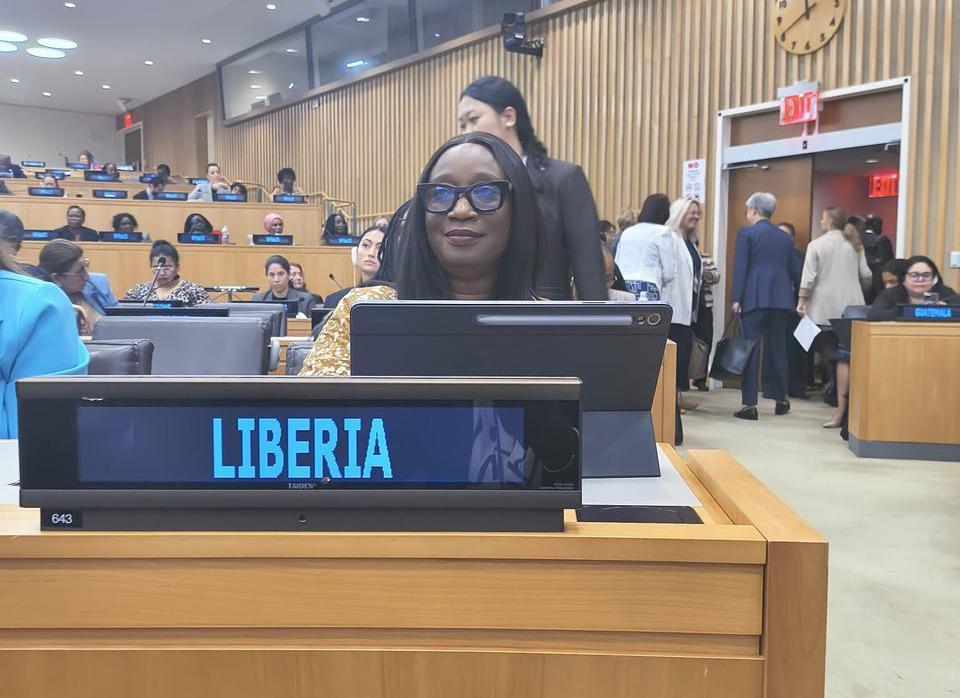Africa-Press – Liberia. Liberia’s Minister of Gender, Children and Social Protection, Gbeme Horace Kollie, speaking at the UN General Assembly’s Ministerial High level Session On Women, Peace and Security
New York, USA – Liberia’s Minister of Gender, Children and Social Protection, Gbeme Horace Kollie, has urged the international community to step up financing for the Women, Peace, and Security (WPS) agenda, cautioning that progress will falter without sustainable investment.
Speaking at the UN General Assembly’s Ministerial High level Session on Women, Peace, and Security, the Minister underscored that while Liberia has achieved meaningful gains in gender equality and post conflict recovery, chronic underfunding remains the greatest barrier to impact.
The high level session was hosted by Japan and Norway, 2025 Co chairs of the WPS Focal Points Network, in partnership with UN Women, under the theme “Deepening WPS Commitments for Action: Innovating and Adapting to Deliver on Peace and Security.”
“Our collective credibility rests on translating commitments into tangible results for women and girls,” Minister Horace Kollie told global delegates. “Resourcing and accelerating action for Women, Peace, and Security is not optional.”
She reminded the assembly that Liberia was the first post conflict country to adopt a National Action Plan on WPS in 2009, later renewing it in 2019. The second plan, extended through 2025, will be followed by a third generation plan (2026–2031) currently in development. The next phase, she said, will be guided by lessons learned and shaped through consultations with grassroots women, security actors, and international partners.
Highlighting national progress, the Minister cited key milestones:
Women now hold 60% of Supreme Court seats and 33.3% of county superintendent positions.
A Gender and Security Sector Taskforce is driving inclusion across the military, police, and immigration services.
Legal reforms and affirmative action measures are dismantling barriers to women’s political participation.
She also pointed to Liberia’s flagship REALISE Project, which has reached over 53,000 vulnerable households, most of them female headed. Its Social Cash Transfer program alone supports 16,000 women-led households across four counties, reducing food insecurity, strengthening resilience, and fostering women’s economic empowerment foundations of peace and stability.
Despite these achievements, Minister Horace Kollie warned that limited financing continues to undermine coordination, weaken implementation, and restrict the reach of lifesaving interventions such as gender based violence services and women led peacebuilding initiatives.
“Liberia stands ready to play its part, but we cannot do it alone,” she said. “Together, we must ensure that financing matches ambition and that no woman or girl is left behind.”
As the world marks 25 years since the adoption of UN Security Council Resolution 1325, Liberia’s message was clear: progress is achievable, but only if political will and financial commitments align to drive sustainable change.
For More News And Analysis About Liberia Follow Africa-Press






